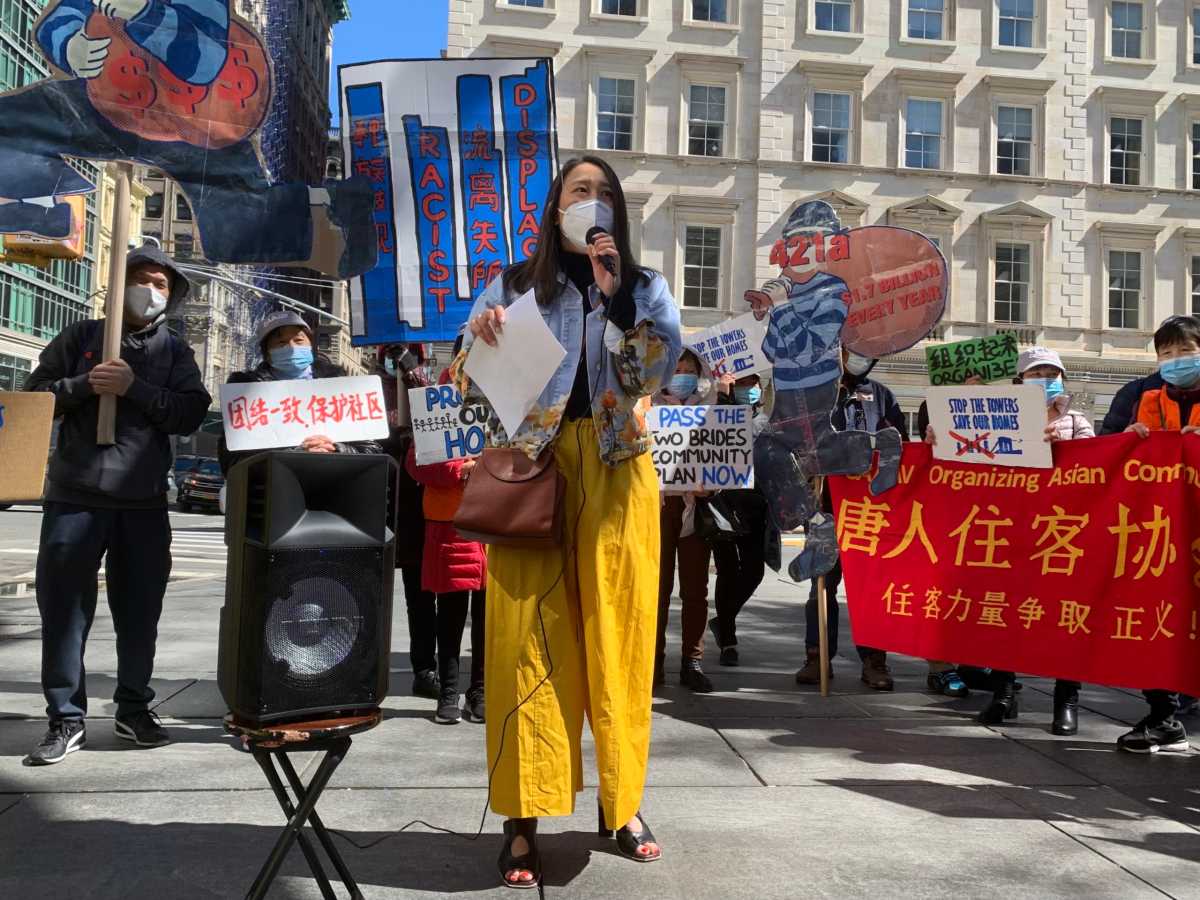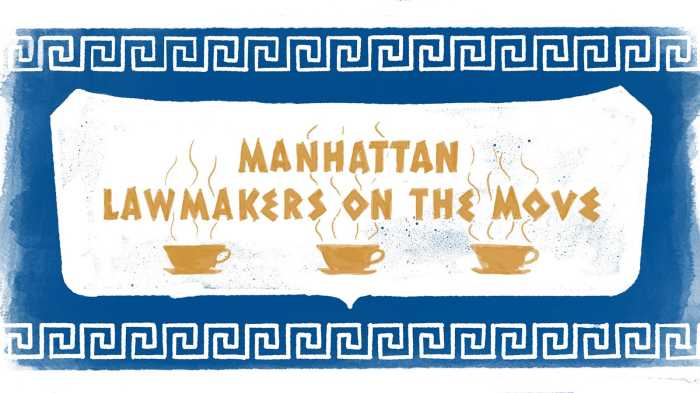When Assembly Member Yuh Line Niou (D – Manhattan) first saw the finalized Congressional District 10 map drawn by court-appointed map-maker Jonathan Cervas late last week, she realized the new lines presented her with a unique opportunity.
“Once the lines were drawn, I realized that this is going to be a historic moment, I think, for many of our Asian American communities,” Niou told PoliticsNY. “Because this is the first time that there will be an ability to maybe have an Asian American in that area, covering Chinatown in Manhattan and Chinatown in Brooklyn.”
The new lines include Manhattan’s Chinatown, which Niou has represented in Albany’s lower chamber along with much of lower Manhattan since 2017, and Brooklyn’s Chinatown in Sunset Park in the same Congressional district – where they were previously divided between two districts. The district also includes parts of Brownstone Brooklyn like Park Slope and Cobble Hill as well as wealthier Manhattan neighborhoods like SoHo and Tribeca.
Prior to the new maps being released, Niou was running in the Democratic primary to unseat state Senator Brian Kavanagh in his lower Manhattan and Brooklyn district – a race she dropped out of to run for Congress. Niou is running as a progressive, who’s already picked up endorsement from activist and former gubernatorial candidate Cynthia Nixon.
But that wasn’t the only reason Niou – who had been publicly mulling a run since Cervas released draft Congressional maps earlier last week that didn’t include Sunset Park in the new District 10 – decided to throw her hat in the ring. During her time in the Assembly, Niou said, she realized lower Manhattan faced several issues that could only be addressed on the federal level.
“We have so many issues that we need to have help with on the federal level,” Niou said. “When I’ve been working on the state level, I started to see where there were so many things that we need to push harder on the federal level that affect my constituents every single day. Whether it goes from public housing dollars to making sure that we have resiliency considerations for lower Manhattan. And so, I realized that this is the time when I could do that for my constituents. And I felt very compelled to give it a shot.”
Although Niou acknowledged that she’ll be a freshman on Capitol Hill with only one vote in a chamber of 435 members, she said she’s shown that she can use the limited scope of her office to full effect to bring results for her community. Plus, she added, she’s held her ground on tough issues, like standing up to former Governor Andrew Cuomo’s administration on allegations that they covered up the true number of COVID-19 nursing home deaths around the state.
“I think I’ve always shown that it doesn’t matter when it comes to a hard vote, or when it comes to a hard decision, or when it comes to a time when I’ve been standing alone against everybody else,” Niou said. “When it came to doing the right thing for my constituents, whether it was to speak up about nursing home deaths, whether it was to speak up about the corruption when it came to appointments, or when it came to the governor. And I never was afraid to [not] shy away from the hard topics and to give everybody the transparency and accessibility in government that they deserve.”
While Niou is likely to receive support from the district’s Asian communities and progressive activists, she’s running in a competitive field against other big-name candidates like ex-Mayor Bill de Blasio and Westchester Congress Member Mondaire Jones. De Blasio – who lives in Park Slope – may benefit from his deep ties to the many of the Brooklyn parts of the district he represented on the City Council over a decade ago, but political operatives say he may be hurt by his unpopularity among rank-and-file voters after eight years in City Hall.
Jones – who’s running for the open seat after being pushed out of his Westchester district by Congress Member Sean Patrick Maloney (D – Hudson Valley) – reportedly has over $3 million in his campaign account and the possible backing of House leadership. But may be hurt by his lack of connections to the district.
Several others considering jumping into the race include Council Member Carlina Rivera (D – Manhattan), attorney Maud Maron and Elizabeth Holtzman – a former district attorney, city Comptroller and Congress Member.
When Niou originally announced her intention to leave the Assembly and run for state Senate in December, several candidates quickly declared their candidacies to replace her in the lower chamber.
There’s businesswoman and activist Grace Lee who ran an unsuccessful race against Niou in 2020 and has received endorsements from several electeds and labor unions including Congress Members Hakeem Jeffries (D – Brooklyn) and Grace Meng (Queens) as well as 1199SEIU and DC37. In a video interview with PoliticsNY Lee said she’s advocated for the cleanup of environmental hazards close to two lower Manhattan schools and fighting for tenants rights on the Lower East Side.
“My track record as an organizer proves that I’ll do the work on the ground to amplify the voices of the people in this district in demanding safe and affordable communities here in lower Manhattan,” Lee said.
Then running to Lee’s left is social worker Illapa Sairitupac, who’s backed by the Democratic Socialist of America (DSA). Sairitupac has said he wants to push the lower Manhattan Assembly district further to the left and bring greater focus to issues like mitigating climate change.
Also running are Denny Salas, who works in a school in the Bronx and spent time on Capitol Hill and as a political consultant according to his website. And Alana Sivin – an educator and former public defender, according to her website, also running as a Democratic socialist.
There are two primary dates this year, with statewide contests and Assembly races on June 28 and those for Congress and state Senate set for Aug. 23.







